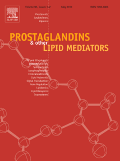
BIOCHIMICA ET BIOPHYSICA ACTA-BIOMEMBRANES
Scope & Guideline
Illuminating the Pathways of Biomembrane Research
Introduction
Aims and Scopes
- Membrane Structure and Dynamics:
Research on the molecular structure of membranes, including lipid bilayers and their interactions with proteins and other biomolecules. This area covers studies on membrane fluidity, phase behavior, and the impact of various factors such as temperature, pressure, and composition on membrane properties. - Protein-Membrane Interactions:
Investigations into how membrane proteins interact with lipid bilayers, including studies on transmembrane domains, protein folding, and dynamics. This includes research on ion channels, transporters, and membrane receptors, highlighting their functional roles in cellular processes. - Lipid Biochemistry:
Exploration of the biochemical properties of lipids and their roles in membrane formation, stability, and function. This includes studies on lipid composition, modifications, and the impact of lipid rafts on signaling and membrane dynamics. - Biophysical Characterization Techniques:
Application of advanced biophysical methods such as NMR, EPR, and molecular dynamics simulations to study membrane systems. This area emphasizes the development and utilization of innovative techniques to probe membrane structure and dynamics. - Drug-Membrane Interactions:
Research on how drugs and antimicrobial compounds interact with biological membranes, affecting their properties and functions. This includes studies on drug delivery systems, membrane permeability, and the mechanisms of action of antimicrobial agents.
Trending and Emerging
- Computational Modeling and Simulations:
There is a growing trend towards utilizing computational approaches, such as molecular dynamics simulations, to study membrane dynamics and interactions. These methods provide insights into the behavior of membranes at the molecular level and help predict the effects of various conditions on membrane properties. - Nanostructured Membrane Systems:
Research on nanostructured membranes and their applications in drug delivery and biosensing is on the rise. This includes studies on lipid nanoparticles, liposomes, and hybrid systems that offer enhanced functionality and stability. - Antimicrobial Peptides and Membrane Interactions:
The investigation of antimicrobial peptides and their mechanisms of action against bacterial membranes is increasingly prominent. This trend highlights the need for new therapeutic strategies to combat antibiotic resistance. - Lipid Rafts and Membrane Microdomains:
An increased focus on the role of lipid rafts and membrane microdomains in cellular signaling and function reflects a deeper understanding of membrane organization and its implications for health and disease. - Biomimetic Membrane Models:
There is a growing interest in developing biomimetic membranes that accurately replicate the complexity of biological membranes. These models are essential for studying drug interactions, membrane protein function, and disease mechanisms.
Declining or Waning
- Traditional Biochemical Assays:
There has been a noticeable decrease in the publication of studies relying solely on traditional biochemical assays for membrane characterization, as newer techniques such as molecular dynamics simulations and advanced spectroscopies gain traction. - Static Membrane Models:
Research utilizing static or simplified membrane models has become less common as the field moves towards more dynamic and physiologically relevant systems that better mimic cellular environments. - Focus on Single Molecule Studies:
The emphasis on single molecule studies, while still important, has waned in favor of holistic approaches that consider the complex interactions within membrane systems, reflecting a broader perspective in membrane biology.
Similar Journals

EUROPEAN JOURNAL OF LIPID SCIENCE AND TECHNOLOGY
Connecting researchers to the forefront of lipid knowledge.EUROPEAN JOURNAL OF LIPID SCIENCE AND TECHNOLOGY, published by WILEY, is a reputable academic journal dedicated to advancing the field of lipid science and technology. With an ISSN of 1438-7697 and E-ISSN 1438-9312, this journal serves as a critical resource for researchers, professionals, and students interested in the bioengineering, industrial applications, and nutritional science of lipids. Covering a broad spectrum from biochemistry to food science, it holds distinguished rankings across multiple categories, including Q2 in Chemistry and Food Science, and Q3 in Biotechnology, showcasing its significance in the interdisciplinary study of lipids. The journal welcomes Open Access options, fostering the dissemination of knowledge and innovation in lipid research. With converged years extending from 2000 to 2024, this journal remains at the forefront of lipid-related research, encouraging scholarly contributions that push the boundaries of science and technology.

Journal of Structural Biology-X
Connecting Researchers to the Heart of Structural BiologyThe Journal of Structural Biology-X, published by Elsevier, is a leading open-access journal dedicated to advancing the field of structural biology. Launched in 2019, it has quickly established itself as a vital resource for researchers, professionals, and students, boasting a prestigious Q1 ranking in Structural Biology for 2023 and achieving an impressive Scopus rank of #19 out of 49 in the biochemistry, genetics, and molecular biology category. With an E-ISSN of 2590-1524, this journal emphasizes accessibility and collaboration by providing open access to its comprehensive collection of research articles, reviews, and cutting-edge methodologies. The scope of the journal encompasses significant themes within structural biology, including protein structure, molecular interactions, and imaging techniques, facilitating interdisciplinary dialogue and innovation. Join the global community of scientists and contribute to the body of knowledge that propels our understanding of molecular architecture through the Journal of Structural Biology-X.

DESALINATION
Pioneering research in water science and technology.DESALINATION, a leading journal in the field of water science and technology, is published by Elsevier and has been a pivotal resource since its inception in 1966. With its commitment to advancing the disciplines of chemical engineering, materials science, and mechanical engineering, this journal boasts an impressive impact factor, reflecting its esteemed position in category quartiles, as it ranks in the Q1 tier across various fields including Water Science and Technology and Chemical Engineering. Researchers rely on DESALINATION for its cutting-edge studies and comprehensive reviews that address critical challenges in desalination methods and water treatment technologies. Operating in a non-open access format, the journal ensures high-quality peer-reviewed articles are readily accessible to professionals and academics seeking to enhance their understanding of water resources and sustainable practices. Its Scopus rankings place it among the top 10% in multiple applicable domains, making it an essential archive for ongoing research and innovative solutions aimed at addressing global water scarcity.

Lipids in Health and Disease
Exploring the vital role of lipids in human health.Lipids in Health and Disease, published by BMC, stands as a leading open-access journal dedicated to advancing the understanding of lipid metabolism and its implications for health and disease. Since its inception in 2002, this journal has fostered accessibility to cutting-edge research, ensuring that knowledge in this vital field is disseminated widely to researchers, clinicians, and students worldwide. With a commendable Q1 ranking in multiple categories including Clinical Biochemistry and Endocrinology, Diabetes and Metabolism, it appeals to a diverse readership, positioning itself at the forefront of research in biochemistry and medicine. It boasts an impressive Scopus rank, where it excels in areas such as Endocrinology, Diabetes and Metabolism and Clinical Biochemistry, making it an essential resource for those looking to deepen their understanding of lipid biology and its clinical applications. Researchers can share and access findings that have significant implications for public health and disease prevention, emphasizing the journal's commitment to fostering innovation and collaboration in the scientific community.

EUROPEAN BIOPHYSICS JOURNAL WITH BIOPHYSICS LETTERS
Innovating Insights into Molecular BiologyEuropean Biophysics Journal with Biophysics Letters is a leading academic journal published by Springer that focuses on innovative research in the field of biophysics. Founded in 1984, it has consistently provided a platform for the dissemination of high-quality scientific findings, bridging the gap between biophysics and its applications in medicine and related fields. With an ISSN of 0175-7571 and an E-ISSN of 1432-1017, this journal has established itself as a Q2-rated publication in both Biophysics and Miscellaneous Medicine, highlighting its influential role in advancing knowledge and fostering collaboration among researchers. The journal features original research articles, reviews, and technical notes that contribute significantly to our understanding of biological systems at a molecular level. Although it does not offer an open-access model, the journal remains committed to promoting scholarly communication and enhancing the visibility of biophysical research globally. By maintaining a Scopus Rank of #74/152 within the category of Biochemistry, Genetics and Molecular Biology, it positions itself as an essential resource for professionals, researchers, and students aiming to stay at the forefront of biophysical science.

Bioelectricity
Bridging Biology and Engineering through Electric InsightsBioelectricity, published by MARY ANN LIEBERT, INC, is an esteemed journal dedicated to the interdisciplinary field that bridges biomedical engineering and electrical engineering, promoting research and innovation in the use of electrical signals for biological applications. Since its inception in 2019, the journal has established a solid reputation within the academic community, evidenced by its categorization in the Q3 quartile for Biomedical Engineering, Electrical and Electronic Engineering, and Medicine, alongside a notable Q2 ranking in Transplantation for 2023. With an ISSN of 2576-3105, Bioelectricity serves as a pivotal platform for disseminating cutting-edge research and fostering advancements in technology and medicine, drawing contributions from scholars globally. Although the journal operates under a traditional access model, it remains a critical resource for researchers, professionals, and students keen on exploring the potential of bioelectric phenomena in medical treatments and devices. As the field continues to evolve, Bioelectricity plays a vital role in shaping discussions and insights that propel innovations in health and engineering.

PROSTAGLANDINS & OTHER LIPID MEDIATORS
Pioneering Research in Biochemistry and PharmacologyPROSTAGLANDINS & OTHER LIPID MEDIATORS, published by Elsevier Science Inc, is a leading journal dedicated to the advancements in the field of lipid mediators, with a specific focus on prostaglandins and other bioactive lipids. This journal, indexed under ISSN 1098-8823 and E-ISSN 2212-196X, serves as a crucial platform for researchers and professionals to disseminate significant findings that span multiple disciplines, including Biochemistry, Cell Biology, Pharmacology, and Physiology. In the 2023 category quartiles, it has achieved commendable positions such as Q2 in Biochemistry and Q2 in Physiology, underscoring its importance and influence in these domains. Although it is not an open-access journal, it provides robust access options, enhancing the visibility of vital research. With its establishment in 1996, the journal continues its commitment to fostering innovative research until 2024, making it an essential resource for those involved in the dynamic realms of lipid biology and medical research.

LIPIDS
Advancing lipid science for a healthier tomorrow.LIPIDS is a renowned peer-reviewed journal published by Wiley, dedicated to the field of lipid research, encompassing biochemistry, molecular biology, and organic chemistry. With its roots dating back to 1966 and a commitment to advancing knowledge until 2024, this journal serves as a vital platform for sharing significant findings in lipid biochemistry and its applications in health and disease. Although it currently does not offer Open Access options, it maintains a respectable standing with a Q3 ranking in Biochemistry and Organic Chemistry, and a Q4 ranking in Cell Biology based on the 2023 category quartiles. Additionally, its Scopus rankings reflect a solid position within the organic chemistry and biochemistry subfields. Published from Germany, LIPIDS caters to researchers, professionals, and students eager to explore the roles of lipids in biological processes and innovatory applications in various scientific disciplines.

BIOCHIMICA ET BIOPHYSICA ACTA-MOLECULAR AND CELL BIOLOGY OF LIPIDS
Exploring the Molecular Dynamics of LipidsBIOCHIMICA ET BIOPHYSICA ACTA-MOLECULAR AND CELL BIOLOGY OF LIPIDS, published by Elsevier, is a leading academic journal that focuses on advancing the field of lipid biology. With an ISSN of 1388-1981 and an E-ISSN of 1879-2618, this journal has established itself as an essential resource for researchers, professionals, and students interested in cell and molecular biology, particularly regarding lipid interactions and functions. The journal boasts an impressive impact factor, standing in the top quartiles of its categories—Q1 in Molecular Biology and Q2 in Cell Biology. As part of the vibrant academic landscape of the Netherlands, it supports both traditional and open access publication models, ensuring that vital research is accessible to a global audience. The converged years from 1998 to 2025 mark its sustained commitment to quality and relevance in the fast-evolving field of lipid research. With a strong ranking in Scopus and a percentile in the 80th range in both Molecular Biology and Cell Biology, this journal continues to be a pivotal platform for scholarly communication and innovation in lipid-related research.

JOURNAL OF MEMBRANE BIOLOGY
Exploring the Intricacies of Membrane DynamicsWelcome to the Journal of Membrane Biology, a premier publication dedicated to advancing our understanding of the complex roles membranes play in biological systems. Published by Springer, this journal features research articles, reviews, and communications on a broad range of topics related to membrane biology, including biomolecular interactions, transport mechanisms, and physiological responses. With an ISSN of 0022-2631 and E-ISSN 1432-1424, the journal has been a cornerstone in the field since its inception in 1969 and continues to thrive as it looks towards 2024. Ranked in the second quartile (Q2) for Biophysics and Physiology, and third quartile (Q3) in Cell Biology, it showcases impactful research that embodies the spirit of scientific inquiry and innovation. Although currently not an Open Access journal, it remains easily accessible to researchers, professionals, and students eager to delve into the dynamic world of membrane studies. As the understanding of membrane dynamics expands, so does its relevance in areas such as drug development and cellular engineering, making the Journal of Membrane Biology an essential resource for those at the forefront of these critical scientific advancements.